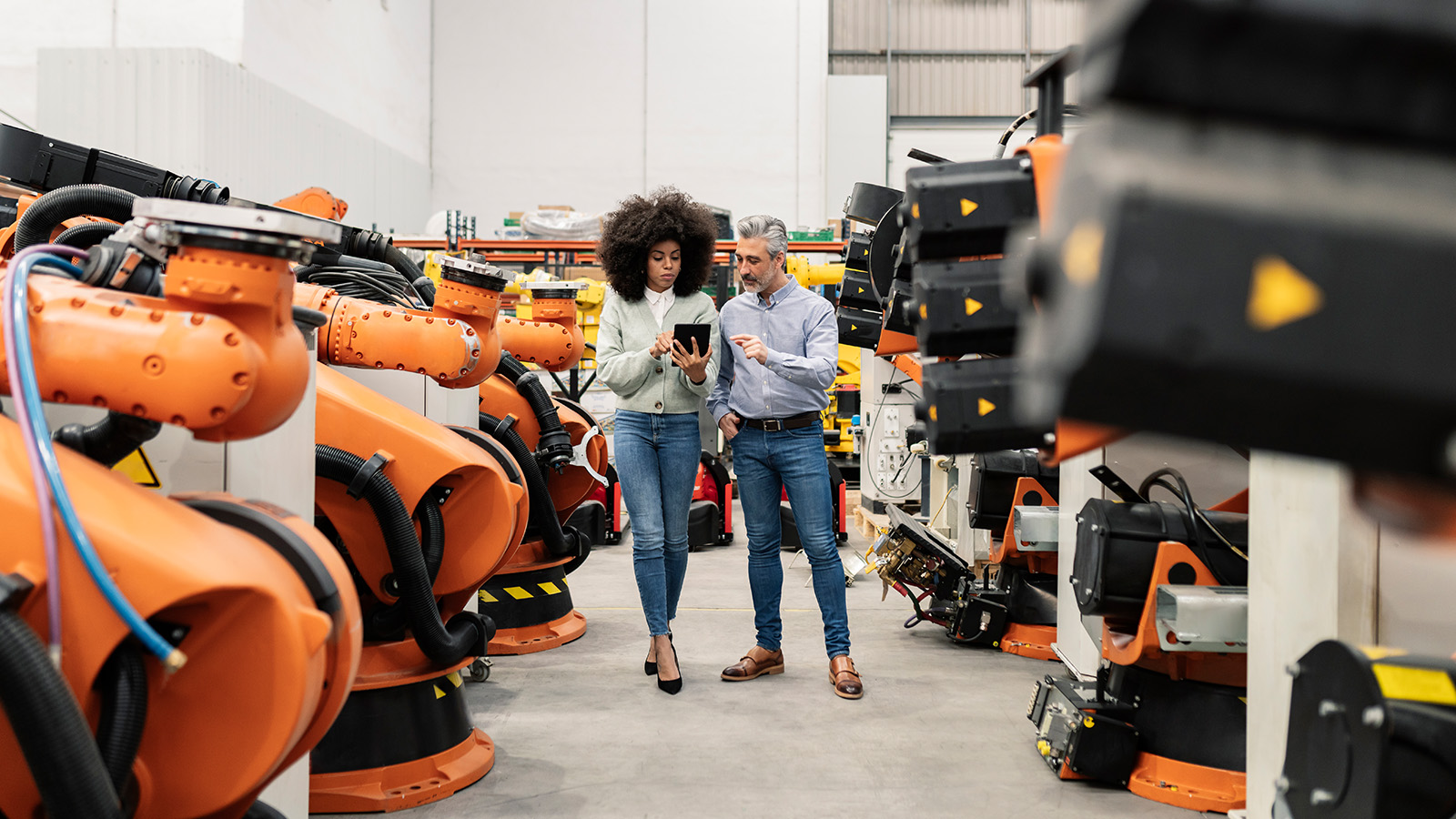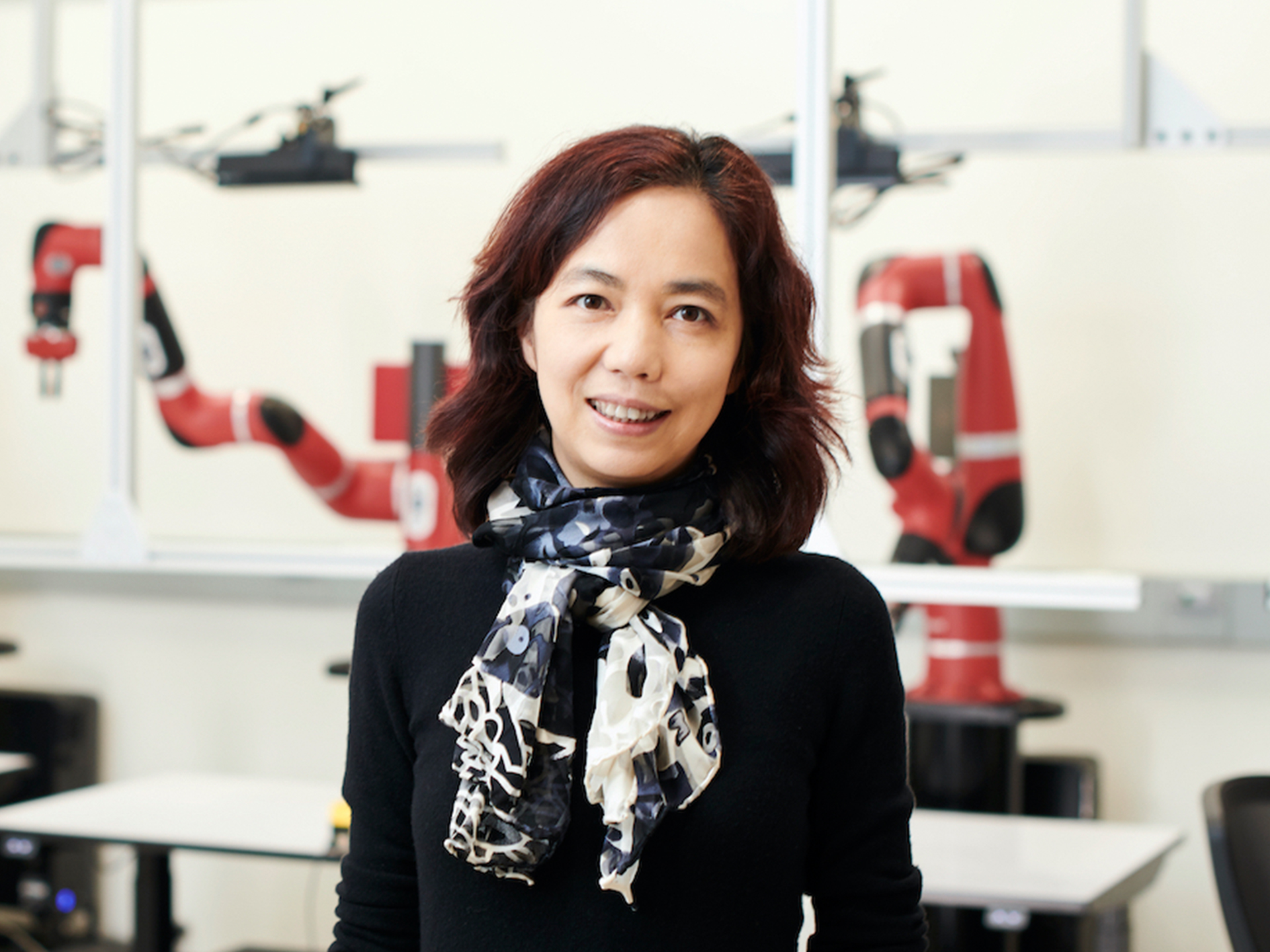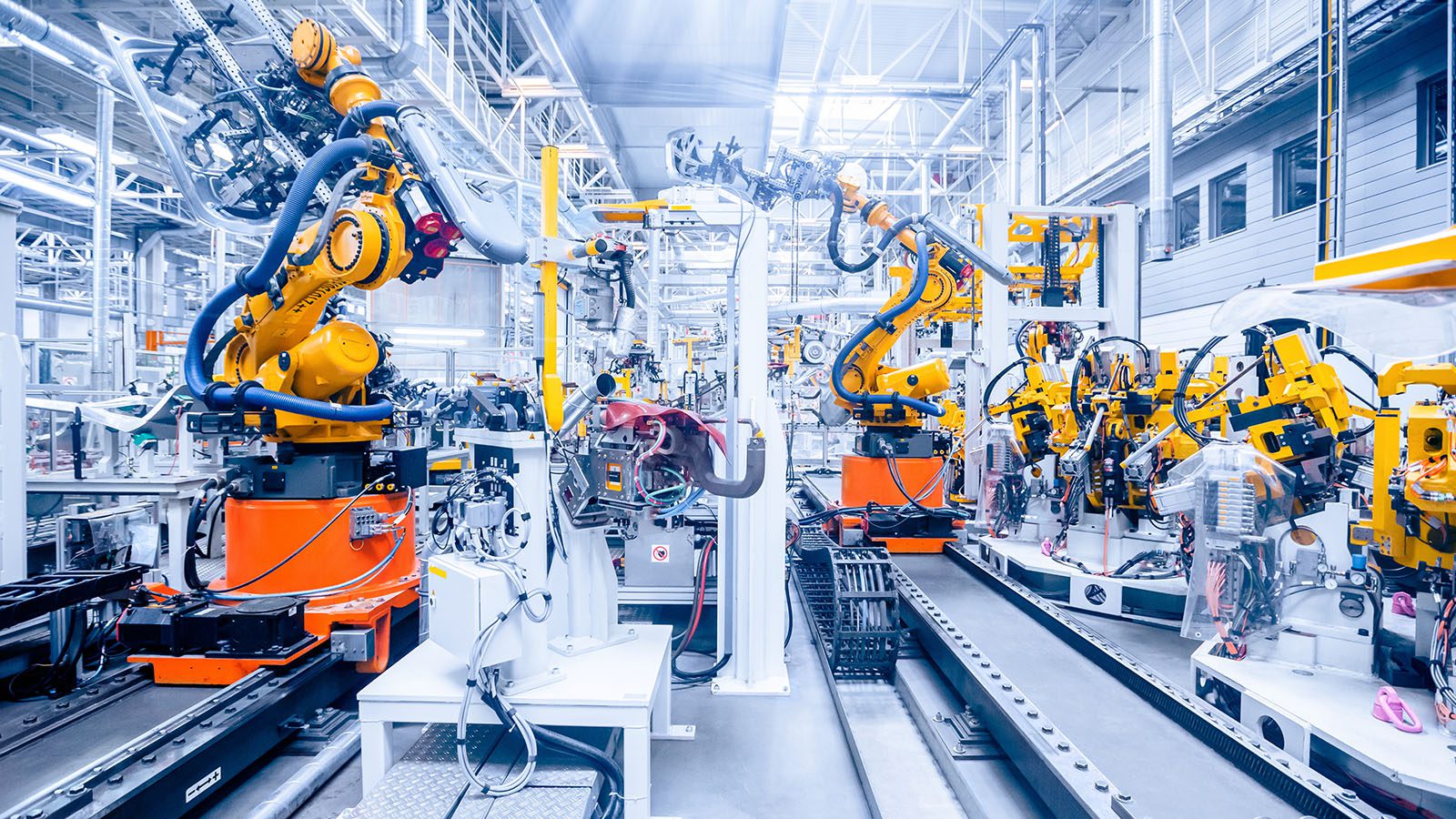Tech & Biz Lab
Our Tech & Biz Lab helps leaders navigate the rapidly changing technology landscape—sharing insights on how they can best adopt new technologies to reap their full potential and leave a lasting impact on organizations, individuals, and society.
We are not your traditional consultants: we are a diverse group of data scientists, engineers, and tech enthusiasts working with leading academics, external collaborators, and partners.
Our Tech & Biz Lab explores the technology horizon and shares actionable insights with leaders.
Some of our current research themes include topics such as enterprise agentic AI, quantum computing, and AI in R&D.
AI Adoption
New advances in AI are shifting us beyond its initial abilities to automate and augment existing processes. How will this latest wave reshape jobs, organizations, and entire industries?
How People Can Create—and Destroy—Value with Generative AI
A first-of-its-kind scientific experiment finds that people mistrust generative AI in areas where it can contribute massive value and trust it too much where the technology isn’t competent.
Geopolitics of AI
GenAI is set to transform the geopolitical landscape, more so than any other recent technology. How can business leaders prepare for these seismic shifts and build resilient and agile digital operations?
How CEOs Can Navigate the New Geopolitics of GenAI
While the US and China have established early dominance in supplying this crucial technology, other competitors are emerging. Here’s what leaders need to know.
AI Competitiveness
How can companies and governments unlock the full benefits of AI to build competitive advantage?
You Can Now Put A.I. Tools In The Hands of All Your Employees. But Should You?
If they’re used indiscriminately, no-code/low-code platforms for A.I. are likely to end up doing more harm than good.
Deep Tech
Explore emerging transformational technologies beyond AI and their potential impact on businesses.
What CEOs Need to Know About Deep Tech
Advanced technologies will bring big changes. Which companies will be ready to capitalize?
AI & Society
AI can be a critical lever to both solve and heighten societal challenges. How can we ensure that it creates a positive impact?
AI-at-Scale Hinges on Gaining a ‘Social License’
Only when companies are able to earn a social license for AI, winning the trust of employees, customers, and society at large, will they have what is required for the sustained use of AI at scale.
Leading-edge thinking
Our monthly column in Fortune shares new ideas to inspire leaders at the intersection of technology, business, and society.
Leading the Agentic Enterprise: What the Next Wave of AI Demands from CEOs
AI agents can coordinate across workflows, make decisions, and adapt with experience. In doing so, they also blur the line between machine and teammate
The Cybernetic Teammate: How AI is Rewriting the Rules of Business Collaboration
We're witnessing the emergence of what researchers call the "cybernetic teammate": AI that doesn't just assist but actively participates in the collaborative process.
Is America’s Loss Really Europe’s Gain? Why the EU’s AI Talent Strategy Needs a Reality Check
The EU’s role in the global AI race will depend on building a strong, integrated ecosystem that actively attracts top talent.
Strategizing with AI: How Leaders Can Upgrade Strategic Planning with Multi-Agent Platforms
Multi-agent GenAI platforms can help businesses acclimate to an environment of constant, high-frequency adaptation.
Why GenAI Could Be The ‘Corporate Archaeologist’ That Every Company Needs
Generative AI can help organizations treat memory as a resource to activate—turning accumulated experience into a competitive advantage.
New Digital Borders Are Shaking Up Your Company’s Tech Stack. Here’s How to Adapt
Today, companies must compete and innovate while also tiptoeing around the widening geopolitical cracks of the global economy.
Stop Chasing AI Benchmarks—Create Your Own
For business leaders, the path to AI success lies not in chasing the latest benchmark champions but in developing evaluation frameworks for your specific business objectives.
How Many Jobs Will AI Eliminate? Nobody Really Knows, And Here’s Why
Over the last half-century, technological change didn’t eliminate work—it changed it. Will AI do the same?
Humans, Machines, and the Rise of AI Coworkers: How to Build the New Hybrid Organization
AI agents are set to go beyond simply augmenting humans, becoming true co-workers alongside us.
Goldilocks and the AI Revolution: Why mid-sized companies may be ‘just right’ for GenAI adoption
The agility of mid-sized companies can enable them to more quickly take advantage of revolutionary technologies like generative AI.
How to Make the Most of AI for Your Organizational Learning
Given the speed at which AI technologies are evolving, momentum from continuously adopting and adapting to new technologies is critical to gaining a competitive edge.
How Your Business Can Make the Most of Abundant Computing Power in the Age of AI
In what novel ways might leaders create, deliver, and capture value with a massive increase in computing power?
GenAI as an ‘Exoskeleton’: How it Expands Your Workforce’s Capabilities
Just as an exoskeleton enhances human movement beyond natural limits, GenAI empowers workers to tackle tasks that would otherwise be out of their reach.
Power Doesn’t Always Mean Profit: What Builders of Digital Ecosystems Can Learn From The Metaverse
The metaverse itself is far from dead. In fact, the spatial computing race has only just begun.
Is AI About Automation, or Augmentation? Understanding the Difference Can Guide Your AI Investments
Business leaders would do well to reacquaint themselves with the fact that the economic value of technology is greatest when it enables full workflow automation.
How AI Can Enable Cross-Border Data Sharing in a Fragmenting World
When it comes to data sharing in the AI era, policymakers need to ensure that the rules of the game reflect the realities of the tech.
The Future is a State of Mind: What it Takes to Build a Future-Ready Company
In so many ways, the future is an attitude, a state of mind. The world’s most successful CEOs have shown that if you are decisive and unsentimental, experimental, and ambitious you can navigate through choppy waters toward your vision of the future.
Potential Unleashed: How Companies Can Leverage New Technologies for Safe Data Sharing
Why don’t more firms share data with others to tackle big, industry-wide problems that they simply cannot solve alone?
The Next Evolution of AI is Already Here—And Hiding in Plain Sight
When it comes to what’s next in AI, the future is already here—it is the strategic and flexible integration of a wide range of AI technologies through a One-AI approach.
Your AI Products’ Values and Behaviors Could Make or Break Your Business. Here’s What You Need to do to Get Them Right
Increasingly, a selling point for AI-powered products is how well they embody specific values such as safety, dignity, fairness, and helpfulness.
How Your Company Could Be Tomorrow’s Surprise GenAI Leader
Big Tech won't always have the edge in the generative AI race.
From Revolution to Real-World Value: How Companies Can Benefit From Web3 in 2024
Web3 is now being embraced by savvy incumbents, and even being integrated into the fabric of existing institutions it was once meant to challenge and overthrow.
ChatGPT’s First Year Is Just the Start of a Permanent AI Revolution. Here’s What Your Company Should do to Prepare
Advancements in AI promise to be self-reinforcing, scrambling how we live and work, and redefining what we consider possible.
How AI-Enabled KPIs Can Help Leaders Align Their Companies—And Get Better Results
AI can identify metrics across organizations that require shared accountability—helping leaders break down silos between teams.
Why Collaboration With Generative AI is so Tricky—And How to Make it Work
How should companies organize themselves to extract the most value from the partnership of humans and AI?
How Employees Feel About Their Jobs Can Make or Break a Company’s A.I. Transformation. Here’s How Leaders Should Handle It
There is no doubt that A.I., especially with the advent of generative A.I., is a technological revolution. As organizations look to reap the full benefits of this technological revolution, however, they must now turn their attention to the human impact of this revolution.
How A.I. Can Transform Your Company’s Performance—And Measure It Better
Using A.I. can help companies transform their performance and sustain that transformation, not just keep track of legacy metrics.
Thinkers & Ideas Podcast
Listen to thought-provoking conversations with authors, as we explore influential ideas on business, technology, economics, and science.
The Worlds I See with Dr. Fei-Fei Li
"Business today is built upon knowledge layers—information on customers, supply chains, markets…. All these layers will now be updated with…new technology, [enabling] optimized decision making, personalization, and customization."
The Coming Wave with Mustafa Suleyman
"If we are to be able to harness the upsides [of these technologies], we have to take a cold hard look at their potential downsides. Too often, people fall into one or other camp—naive techno optimists […] or modern-day Luddites. That does not cut it anymore."
The Exponential Age with Azeem Azhar
The creator of the Exponential View newsletter and community published a new book on how technology impacts economies and companies, and how this force can be best harnessed.
Recent Insights
View AllWhere Will Tomorrow’s AI Geniuses Go?
Policy shifts could reshape the AI map—but talent, not tariffs, will have the greatest long-term impact.
The Geopolitics of Tech Is Hitting All Companies. How Boards Can Respond
Competition over AI development is contributing to technological fragmentation globally. But boards can help their management teams anticipate threats and increase resilience.
DeepSeek Scared Away Some AI Funders. But This Wealthy Backer is Ready to Spend.
Why government — not business — will see that AI startups get the money they need.
How CEOs Can Navigate the New Geopolitics of GenAI
While the US and China have established early dominance in supplying this crucial technology, other competitors are emerging. Here’s what leaders need to know.
Learning to Manage Uncertainty, With AI
Companies are using AI to enhance their organizational learning, improving not only financial results, but also the ability to manage strategy-related uncertainties.
Generative AI’s Impact on Computing Power: Lessons from a Bullish Model of Global Demand
The challenge for most businesses is not preparing for a world of computing power scarcity, but rather the opposite—getting ready to seize orders-of-magnitude more affordable compute to secure novel forms of competitive advantage.
GenAI Doesn’t Just Increase Productivity. It Expands Capabilities.
A new experiment shows that GenAI isn’t just a tool for increasing productivity—it can expand the range of tasks workers can perform.
Can AI Deliver Fully Automated Factories?
As technology advances, the shift toward fully automated, lights-out factories will hinge on economic factors, with agile manufacturers poised to lead the way.
The Benefits of Data Sharing Now Outweigh the Risks
Sharing data with competitors might sound scary to executives, but only collaboration can solve some of industry’s biggest problems.
Bring Human Values to AI
Speed and efficiency used to be the priority. Now issues such as safety and privacy matter too.
The Future of Strategic Measurement: Enhancing KPIs With AI
Findings from the MIT SMR - BCG Artificial Intelligence and Business Strategy Global Executive Study and Research Project













































